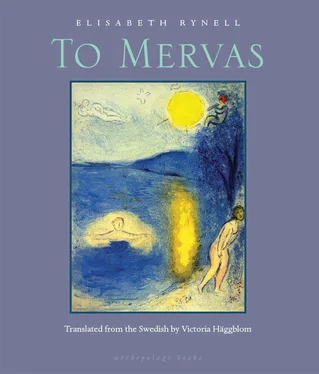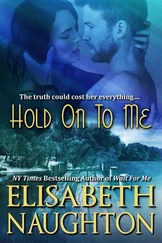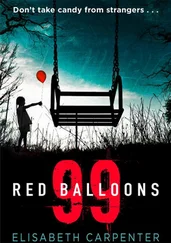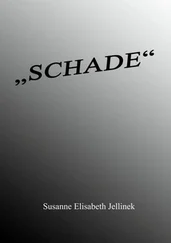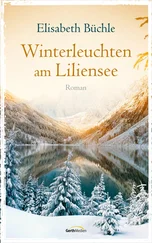The surface of the water was so still that the cloudy sky was reflected in it. It was as if the lake were calling me. Come inside, it said. Let me surround you. I took off my boots and my pants and took a few steps out into the water. It was icy cold; nevertheless I stood still in it and let the cold push and pull at my feet and shins. I rinsed my hands and wet my face, then I quickly ran out of the water and pulled off the rest of my clothes. Naked, I stepped into the water again and it was as if I were meeting someone in it, as if I were seeing a lover. The water had awakened a desire in me; I washed my armpits, my crotch, I rinsed my face again and again, pulling my wet fingers through my hair: I pulled and pulled so it felt like dull plow blades against my scalp. The water was so cold it hurt, but I had been seized by a thirst for it, I couldn’t get enough of it; the cold, soft water would make me come alive. It would awaken me, rinse the dirt off me. I would emerge hard and clean, shining like a pebble by the edge of the water. I stood there scooping up the water, splashing it over me, thinking that water really was the origin of life, everything was made from it, and I wanted every pore in my skin to drink and be full.
When I finally got out, both my arms and legs were numb from the cold and my fingers ached. But the depths of me felt remarkably warm, delighted in being alive. Something had begun stirring inside me, a desire to be part of the world.
But the euphoria I had felt by the lake in the morning quickly dissipated. I guess I can’t handle that much happiness. Little by little, the day filled me with gloom; darkness arose in me like an endless, gray December dusk. I walked around aimlessly searching for the cabin. It hadn’t been visible from the lake as I’d expected, but I knew it had to be somewhere close to the water west of the beach where I’d been.
In the birch forest I had seen when I came to Mervas were plenty of paths leading here and there, a tangle of tracks among the rubble and the ruins. This was where the outdoor dance floor had been; the little kiosk was still standing, its windows broken, garbage visible inside. Fifty years ago, Lilldolly had danced here with Arnold and the men from the bachelors’ barracks; it wasn’t difficult to see where the stage and the dance floor had been. It was as if the forest wanted to hold on to the memory; grass grew here, budding buttercups and red campion.
One of the small paths by the dance floor led into the woods and I soon ended up in a dense forest of young pines. In an instant, mosquitoes surrounded me like a wall; suddenly they were everywhere with their thin whirring sound and feathery touch. They danced around me and attacked me at the same time; their bites burned everywhere, on my neck, my scalp, my hands, throat, and face. I was seized by a deep, claustrophobic fear and walked faster until I was running, surrounded by a buzzing cloud. The cabin appeared before me without warning. A rough gray wooden wall materialized between the tree trunks. I stopped and heard my own breathing along with the whirring of mosquitoes while I angrily swung a leafy branch around me.
Here was the cabin. I gazed at the back of it; the trees were close together in front of the windowless wall. The fear the swarm of mosquitoes had produced in me grew larger, rose to the surface, and at once everything seemed ominous: the forest, the dull gray wall of the cabin, the notion that someone could be inside it. I turned around and, like a hunted animal, ran back through the woods.
Marta, Mart!
This isn’t the first time I have sat down to write to you. But all the other letters I’ve either thrown away or burned. Some I’ve placed among my journal notes like memory plaques. The letters often got incredibly long; if I’d saved them all they’d be an entire autobiography. I guess I’ve tried to understand my life by writing about it, to understand and explain. As you can see, I’ve failed. That’s why I decided that this time my letter to you would be concise. It would still be a real letter, not just a note like the one I sent you last fall (and assume you received). My cowardly notion was that if you wanted to see me, you’d sooner or later show up in Mervas. If you do come, it will most certainly be in the summer, and then this letter would be here, waiting for you.
I’m a coward. I don’t know if I want to see you. I really don’t understand why I’m writing to you at all. Something in me has pushed me to do it, and I finally decided to go ahead.
Enough rambling. This was supposed to be a concise letter.
For many years, I’ve lived periodically in Zimbabwe, participating in the excavations of the old gold mines there. Seven or eight years ago, when I happened to be home for a while, I saw a story in the newspaper. It was a brief notice about a mother who had killed her severely disabled child. She’d been evaluated for mental illness, it said, and had been in such a state of shock she had to be hospitalized.
I knew immediately. I knew it was you, Mart. My body knew it, my muscles, my nerves, and my cells. I began shaking violently where I sat; it was as if an electric current were going straight through me. My tea spilled onto the newspaper. I screamed, just screamed without words. I felt so terribly sorry for you. But it wasn’t just that; without quite understanding it at first, I also felt responsible. I knew I was involved and responsible. I was part of this story. What I’d read in the newspaper was part of my own story, part of my own life. Isn’t that right, Mart? Isn’t it?
With time, I’ve understood that my actions also were part of this story, that they were part of it in a way that couldn’t be changed or erased. It was as if I had in some impossible way been with you. As if I had been present. It all flashed in front of me as in a dream sequence, a nightmare; everything that had happened was replayed in my mind over and over.
You might think that I’m barging into something I ought to stay away from, something that concerns only you and that no one else has the right to talk about or touch. But what I want you to know is that you weren’t alone when it happened. What we’d had together and what I did to you was part of why you did it.
It isn’t always simple to know what’s important or crucial in your life. I think it’s possible to miss it altogether. That’s probably the easiest way. When I came back from the Orkney Islands and heard that you’d had a child with another man, I thought all ties between us were cut. I wanted it to be that way. I wanted to be free from you. You were frightening, disruptive, and I felt swallowed and crushed by you. I thought I could let you disappear from my life. That is, until I read that notice in the paper. It hit me — all this time, I hadn’t really been part of my own life. I had escaped into something else, changed my name, assumed another fate.
But I never contacted you. I resisted the urge. I thought it would’ve been foolish, that my inclinations were sick. When you received my little note, I’d already written impossibly long letters that I’d thrown away.
I’m still not sure. I still don’t know why I’m writing to you. Perhaps I’m not writing to you as much as I’m writing to the part of my past tied to you.
I’ve been allowed to use this cabin, where my letter will be waiting for you, until the moose hunt starts on the first Monday in September. Mervas is an odd place, odder even than it may first seem. I’m down in the mine most of the time. I’ve found something down there that I can’t write about, an entire world.
You’re welcome to stay in the cabin so you don’t have to camp. I would like you to stay in it.
If you want to come down into the mine (and to everything else down here), the easiest way is through the tunnel that opens onto the village. It looks like an ordinary ground cellar. The other entrances have more or less collapsed or are underwater.
Читать дальше
